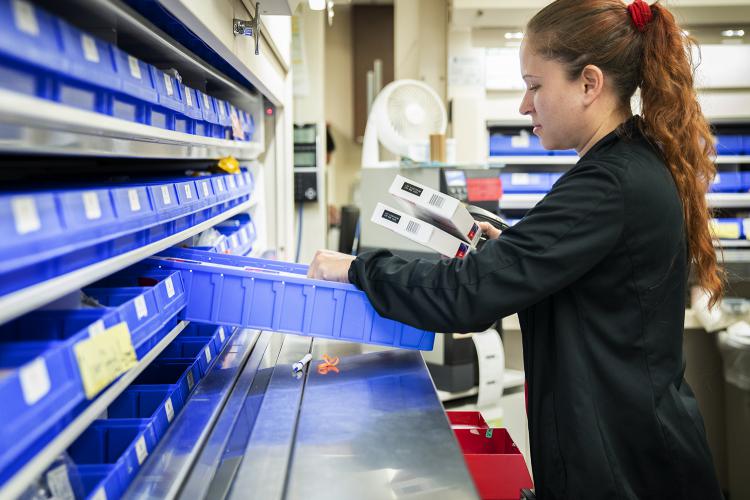
JPS Health Network has made the list of “Most Wired” healthcare organizations in the world as compiled by CHIME, the College of Healthcare Information Management Executives.
“This is the first time JPS has been nationally recognized for our technological advancements,” JPS Vice President and Chief Technology Officer David Mendenhall said of the achievement. “We have an amazing team.”
It wasn’t just the work of the IT Department, but teamwork across the health network that helped JPS meet its goal of making the prestigious list, according to Mendenhall.
“It is all about collaboration,” Mendenhall said. “We have a network of nurses, physicians, and staff members that help identify needs and opportunities to guide our technology strategy.”
Donna DeBoever, MA, RN-BC, Director of IT Regulatory Projects at JPS, said the health network uses technology to help patients in many ways including clinical decision support, verification of patient identity and reassurance that people get the correct dose and type of medicine and the blood transfusion intended for them. Even breast milk is inventoried electronically to make sure babies get bottles from their mother, not someone else’s.
When documentation is done electronically, accidents are prevented, DeBoever said. If someone tries to order medicine for a patient who has already been given a prescription, a warning is automatically generated by the EPIC patient management system used by JPS. When prescriptions are made via a computer terminal, there is no longer the potential hazard of a pharmacist filling the order incorrectly because they misread the doctor’s handwriting.
“For decades, physicians’ handwriting led to mistakes,” DeBoever said. “When a physician puts things in electronically, legibility is no longer an issue.”
One of the other things tech has allowed JPS to do is exchange information with other healthcare organizations and providers, DeBoever said.
“We no longer have to duplicate, fax or mail records,” DeBoever said. “Key information for the continuing care of our patients is going to the next provider electronically in minutes instead of days. If you see a primary care physician in one of our clinics, they have instant access to your records and information. It keeps the patient at the center of the process. Wherever we can use technology we try to do so. I think JPS does an excellent job with that.”
What does it mean to be Most Wired?
This is the 20th edition of the Most Wired list, although the makeup of the survey that determines the winners was altered dramatically this year from how it was previously done. According to CHIME leaders, the organization revised the questions and methodology of the survey after taking it over last year from Hospitals and Health Networks. The plan behind the changes was to help the organization identify best practices and to promote the strategic use of healthcare IT to improve patient safety and outcomes.
“Healthcare IT has the potential to revolutionize care around the world, but to meet that potential it must be used strategically,” Russell Branzell, President and CEO of CHIME, said in a release about the awards. “The technology is important, but leadership and a strategic vision are equally important. The diversity of the organizations that earned Most Wired status this year shows quality care can be achieved almost anywhere under the right leadership. By sharing the best practices in Most Wired, we hope quality care will one day be available everywhere.”
The College of Healthcare Information Management Executives (CHIME) is an executive organization dedicated to serving chief information officers (CIOs), chief medical information officers (CMIOs), chief nursing information officers (CNIOs) and other senior healthcare IT leaders. It has members in 51 countries around the globe.
